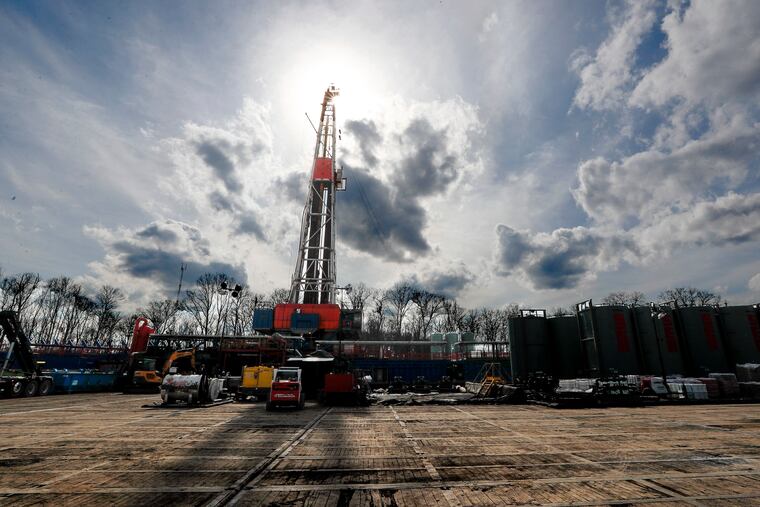Pa. statehouse power grab is climate change denial in disguise | Editorial
It's bad enough that Pennsylvania's Republican-controlled legislature wants to prevent the state from fighting climate change. But GOP legislators want to take charge of air quality, too.

Gov. Tom Wolf likely will veto the Republican-controlled legislature’s latest effort to do as little as possible about climate change. A bill approved on Sept. 9 — as waves of wildfires incinerated parts of the West — would derail Wolf’s executive order for Pennsylvania to cut carbon pollution from power plants, and would prevent Pennsylvania from joining the Regional Greenhouse Gas Initiative (RGGI). Wolf vetoed a separate Republican anti-RGGI bill in May; Pennsylvania emits the fourth highest amount of greenhouse gases of any state in the country.
Wisely, Pennsylvania’s independent Environmental Quality Board voted 13-6 earlier this week to advance a separate gubernatorial executive order to join RGGI. But the new GOP measure would mandate that only the legislature could make such a decision. The bill also would prohibit the state Department of Environmental Protection from taking any other action "designed to abate, control or limit carbon dioxide emissions” without getting the legislature’s permission. This would put politicians and their industry patrons, not scientists or other professionals, in charge of Pennsylvania’s air quality.
Supporters such as Republican state Sen. Bob Mensch, who represents portions of Bucks and Montgomery counties, like to portray this attempt to usurp gubernatorial and regulatory authority as a noble battle against executive overreach. But with its own act of overreach, the GOP seeks to tie the hands of the governor and the DEP and privilege the economic and political demands of the state’s powerful fossil fuel industry.
Wolf capitulated to the lobby’s influence in July, when he signed off on a measure to provide a 25-year, $670 million tax break for a quartet of petrochemical facilities that utilize natural gas. He had vetoed an earlier version of the bill; the final result is a law that will burden Pennsylvania taxpayers with a corporate welfare obligation for the next quarter of a century.
» READ MORE: Gov. Wolf’s support for a petrochemical tax credit is a mistake. He should veto the bill. | Editorial
The RGGI bill attracted some Democratic votes as well as blue-collar union support. Philly labor leader John J. 'Johnny Doc’ Dougherty sent a letter to legislators backing the bill on behalf of the Philadelphia Building and Construction Trades Council. Regardless of whether GOP-driven legislative maneuvers have served to divide Democrats in a swing state during a presidential election year, both the anti-RGGI bills also used employment concerns as a pretext for policies likely to have more damaging long-term impact than any industry job losses.
Launched in 2009, RGGI is a 'cap-and-trade’ system to cut emissions, encourage alternative energy, and create jobs by encouraging electric power producers to gradually shift away from high carbon-emitting fuels and technologies. Environmental advocates say participating states in New England and the Mid-Atlantic region have dramatically cut carbon emissions and raised revenue to support alternative and renewable energy. A 2018 study also credited RGGI with cutting the cost of power.
The state’s environmental quality board expects joining RGGI would keep 188 million tons of Pennsylvania carbon emissions out of the atmosphere, create 30,000 jobs, and prevent hundreds of fatal air pollution-related medical conditions statewide. Given that people of color and other residents of poor and polluted neighborhoods, like those adjacent to the former PES refinery, often face serious health challenges adds environmental justice to the case for Pennsylvania to join the RGGI.